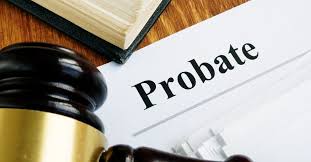
3 mistakes to avoid during probate
The Biggest Mistakes to Avoid During the Probate Process
Probate is a court-supervised process for settling a deceased person’s estate, ensuring debts are paid and assets are distributed according to the law or the decedent’s will. While it can be a straightforward process, it’s also filled with potential pitfalls that can lead to delays, legal disputes, and financial losses. Below are the three biggest mistakes to avoid when probating an estate.
1. Failing to Properly Identify and Notify Heirs and Creditors
One of the first and most critical steps in probate is identifying and notifying all heirs and creditors. Why is this important? If an heir is overlooked, they may later challenge the probate proceedings, leading to costly litigation and delays. Similarly, failing to notify creditors properly can result in unpaid claims resurfacing long after the estate has been settled, causing complications for beneficiaries.
How to avoid this mistake:
Conduct a thorough review of the decedent’s records, including bank statements, property deeds, and financial documents.
Publish the required notices to creditors as mandated by state law.
Keep a record of all notifications and responses from heirs and creditors.
2. Mismanaging Estate Assets
Executors and personal representatives have a legal duty to safeguard estate assets. Mismanagement—whether intentional or due to inexperience—can deplete the estate’s value, leaving heirs with less than they were entitled to and opening the executor up to personal liability.
Common mismanagement issues include:
Selling assets below fair market value.
Failing to maintain estate property, leading to depreciation.
Co-mingling estate funds with personal funds.
Unauthorized distributions before debts and taxes are settled.
How to avoid this mistake:
Open a separate estate bank account to keep estate funds separate from personal funds.
Obtain professional appraisals for valuable assets before selling them.
Follow court guidelines and obtain necessary approvals before distributing estate assets.
3. Ignoring Deadlines and Court Requirements
Probate involves numerous deadlines, from filing initial paperwork to submitting final accountings. Missing these deadlines can result in court penalties, removal as executor, or unnecessary delays in closing the estate.
Common missed deadlines include:
Failing to file the initial petition to open probate within the required timeframe.
Missing creditor claim deadlines, which can impact estate distributions.
Delaying required reports or accountings to the court.
How to avoid this mistake:
Create a timeline and checklist of all probate-related tasks and deadlines.
Work with an experienced probate attorney to ensure compliance with all court requirements.
Keep clear records of all actions taken on behalf of the estate.
Conclusion
Probate can be a complex and time-sensitive process, but avoiding these common mistakes can help ensure a smoother administration and prevent costly legal disputes. Whether you’re an executor handling an estate or a beneficiary with concerns, The Probate Law Center can provide guidance to help you navigate the process with confidence.
📞 Need assistance with probate? Contact us at (816) 673-3223 or visit www.ksmoprobate.com to schedule a consultation.
Disclaimer: This blog post is for informational purposes only and does not constitute legal advice. Every probate case is unique, and you should consult with a qualified attorney for guidance specific to your situation.

